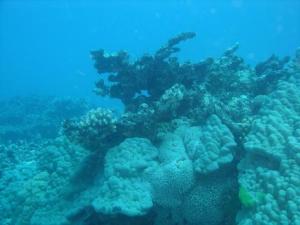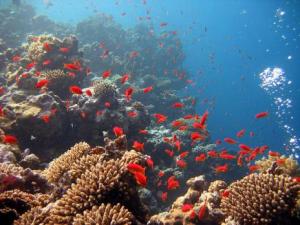
Coral reefs are communities of tiny animals called coral polyps. They grow in sunlit clear water. Coral plays a fundamental role in protecting coastlines from erosion, lead to the forming of white sandy beaches. Coral provide homes for 1/3 of all fish species on Earth.

These complex, fragile ecosystems are deteriorating at an alarming rate.
CAUSES OF ENDANGERMENT
Coral species have specific needs for light, temp and oxygen, easily damaged, sensitive to unusually warm water caused by global warming. Smothered by erosion from deforestation and dredging of rivers and bays, blown up by fishers using dynamite.
Often poisoned by collectors working for the aquarium trade, inadvertently damaged by boaters and scuba divers who stand on reefs or hit them with fins breaking off pieces of the fragile coral. Damage from anchors and accidental boat groundings is a severe problem.
Cyanide and toxins are used to stun reef fish so they can be captured alive as aquarium specimens. The accumulation of poisons is killing the reefs. Improvements in the ability to keep corals alive has spurred a worldwide demand for live corals for aquariums.
Scientists have become alarmed by increased occurrences of “coral bleaching”. In many parts of the world the reefs are turning white and dying.
Coral gets its beautiful colors from the algae that lives within. This algae produce oxygen and sugars for the coral polyps to eat. If coral polyps are stressed by environmental changes turn white.
You must be thinking……“What can I do?……..I can’t stop this?”
There are many steps we can take to help save what’s left of the coral.
Support business that are reef-friendly. Ask fishing, boating, aquarium and snorkelling services to protect reefs. Don’t litter
Don’t leave behind unwanted equipment ie. nets and fishing lines. Any kind of litter is pollution and holds the chance of harming the reefs and its species
Contact government representatives demanding action to protect our reefs.
Spread the word